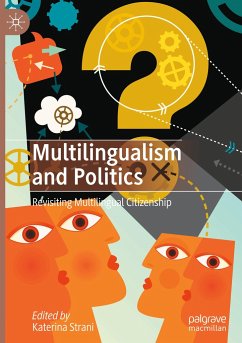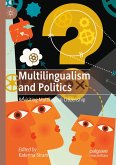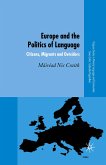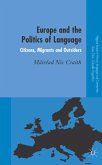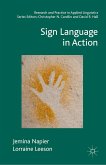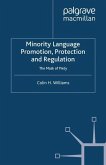This edited book makes a significant contribution to the relatively under-explored field of multilingualism and politics, approaching the topic from two key perspectives: multilingualism in politics, and the politics of multilingualism. Through the lens of case studies from around the world, the authors in this volume combine theoretical and empirical insights to examine the inter-relation between multilingualism and politics in different spheres and contexts, including minority language policy, national identity, the translation of political debates and discourse, and the use of multiple, often competing languages in educational settings. This book will be of interest to students and scholars in the fields of politics, sociology, sociolinguistics, language policy, and translation and interpreting studies.
"This volume is a rich source of fresh material analysing the politics of multilingualism and the discourse of language within the public sphere. ... it is a useful corrective to the overly systematic interpretation of language/linguistics offered in so many sociopolitical interpretations. ... the many fresh interpretations and insights offered here make the book worth reading in its entirety: profitable, prescient and persuasive." (Colin H. Williams, Journal of Multilingual and Multicultural Development, October 28, 2021)
"The volume points toward an urgent field in language policy, namely a closer connection and cooperation between the disciplines of political science, applied linguistics and sociolinguistics in order to tackle the challenges of an ever-growing globalising world in the twenty-first century in which multilingualism is the new linguistic dispensation ... ." (Oliver Delto, International Journal of Multilingualism, April 23, 2021)
"The volume points toward an urgent field in language policy, namely a closer connection and cooperation between the disciplines of political science, applied linguistics and sociolinguistics in order to tackle the challenges of an ever-growing globalising world in the twenty-first century in which multilingualism is the new linguistic dispensation ... ." (Oliver Delto, International Journal of Multilingualism, April 23, 2021)

